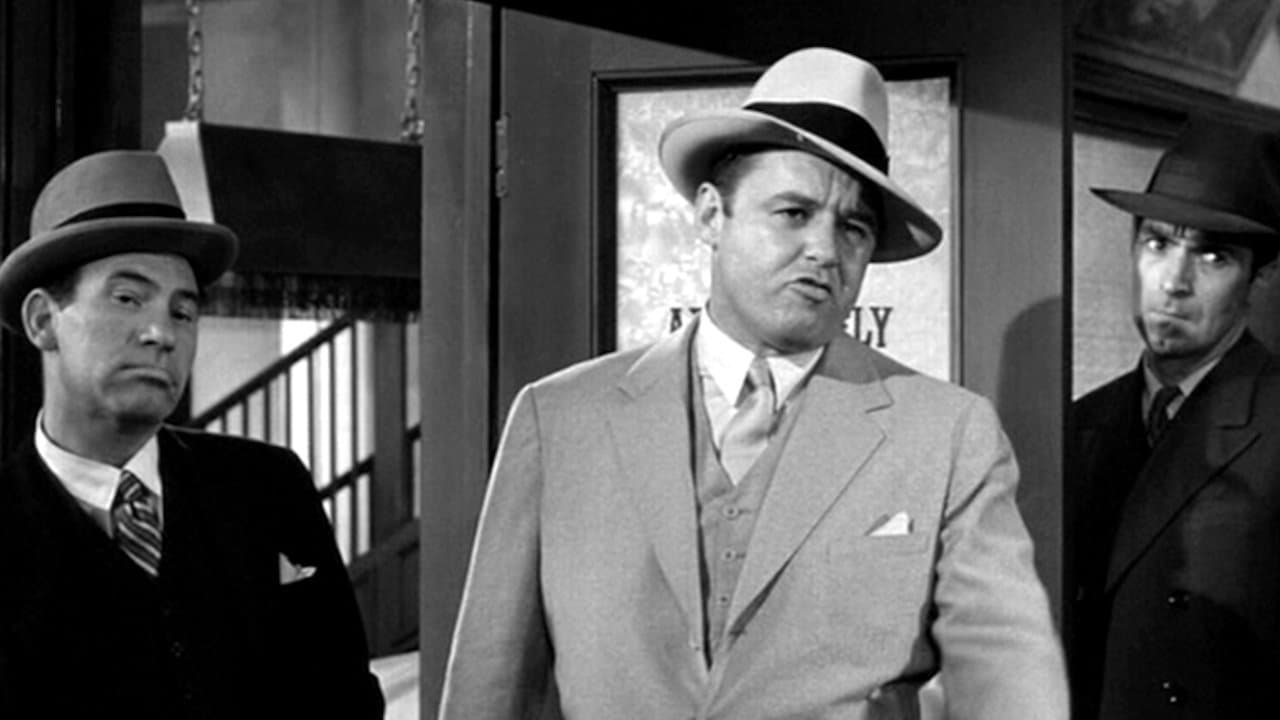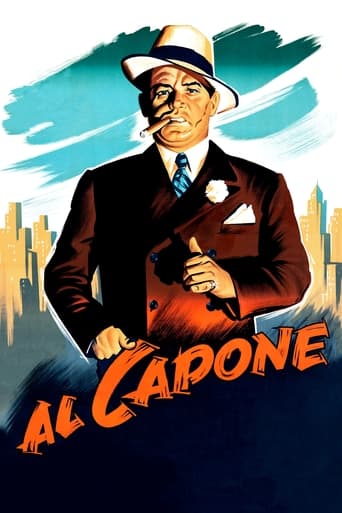

Yawn. Poorly Filmed Snooze Fest.
... View MoreMemorable, crazy movie
... View Moreeverything you have heard about this movie is true.
... View MoreThe movie is wonderful and true, an act of love in all its contradictions and complexity
... View MoreHere you have a very brutal and famous iconic criminal played by a very intense, almost overwhelming portrayal by Rod Steiger - who is definitely one of the all-time iconic movie "tough- guys". So, unless the writers drop the ball this should work and so it, mostly, does.By today's standards one might laugh at the depiction of the gang violence of Chicago in 1919. First, this was depicting a period in the twenties where outlaws had the advantage over law- enforcement, and, second, this is filmed with the technology and production values from a by- gone era. The viewer must keep in mind that the 20's Capone vs. O'Banion feud was between gangs not yet spilling over into the general populace, - even more jaw-dropping was Capone's rackets of virtually running city hall and skimming from the legitimate businesses of Chicago. This was achieved with a violet campaign of bombs with a body count. One that in modern times we can't wrap our heads around as to how in any time one criminal could freely do such. Well, he did and what you see isn't really such a poor representation as the point is made with what could be just graphic enough yet palatable for consumption per period norms. If anything it does depict it topically though ham-strung with the necessary sanitizing for 1950's audiences. Capone, the film, gets a pass here because it humbly, yet effectively, shows Capone as extremely violent with much charisma as only a psychopath combines.Now, seriously,what makes this film quite good? The fact it really did happen looms large, Capone was a unique man at a unique place at a unique time; creating the so-called "perfect storm", an overused, but accurate cliché' here. This is to be kept in mind as this film needed to be made.Though NYC's mob Coss Nostra would rule in similar fashion years later, however, no one ever controlled a town so completely and with the impunity of Al Capone. He was on a scale that belies rational comprehension. The writers have effectively had to tread lightly and still push this into the viewer's psyche. I think they've just barely managed it sans the luxury of the tremendous graphic violence and language of more modern films. Sure they've glossed over much, but they've got Steiger and he really brings Capone to life. Steiger's like DaVinci as he paints Capone with his physical presence, amazing expressions, animated delivery of harshly direct dialog, and ebbs and flows of anger. This is, perhaps, the definitive mob psychopath with, at least early on unlimited power. So, no Steiger doesn't "over act " or slip into uncontrolled melodrama. He's "spot on" one might say. It's a performance that stands tall and no matter how many times Capone's life is re-ran this will absolutely stand as the definitive celluloid Al Capone. That's how good Steiger is and he makes a movie that could rate a 5 or 6 into a 7.5.In the must see crime/gangster flicks there's, of course, The Godfather, then Scarface, and right behind that comes Capone before Bonnie and Clyde I'd humbly submit. Gotta see this one.
... View MoreIn Richard Wilson's "Al Capone", there is a commodore who arrives to Capone's mansion in Florida. He seems to be a "distinguished" citizen, probably a member of the local aristocracy; and he is glad to be associated with Capone. The character —introduced by scriptwriters Henry F. Greenberg and Marvin Wald— is not paid too much attention, but he is a key figure if one tries to make a deeper analysis of the economy of any society or country. In the end, Greenberg and Wald opt for moralizing, and warn about an economic pattern Capone supposedly introduced in American society, which is still in effect. Nothing is said about those hidden "commodores" who use people as ruthless as Capone —in favor of or opposed to the law—, persons who are only "wild cards", jokers in a game the "commodores" of the world play from the top, where ordinary people seldom see them. So, "Al Capone" results an interesting and entertaining piece of filmmaking, made efficiently by Wilson with top professionals (cinematographer Lucien Ballard, art director Hilyard Brown, composer David Raksin, and an impressive cast), and a script that tries to be as faithful as possible to facts more or less known by the audience, but superficial in its study of the man, and the main variables that influenced his life, from a bio-psycho-social perspective. It is in the same vein as Howard Hawks' "Scarface", although, as declared by Hawks, he was not trying to make a biography of Capone, but rather show how the world of gangsters resembled the behavior and logic of children's play.
... View MoreRod Steiger gave a splendid performance here as the ruthless gangster who spared no one in his quest to attain the top of the mob world. Cunning, vicious and any other nasty adjective I could think of, Steiger was memorable here in the title role. He totally captured the man he portrayed.He also had great support with Nehemiah Persoff, who played his mentor. Persoff seemed to relish in these kinds of parts. He played a comedic hoodlum in the same year in "Some Like it Hot," and was often on the show in top gangster form in television's "The Untouchables."The movie showed that Steiger tried to have a private life, no less than with the widow of one of his many victims. Of course, business always came first.The movie was a little spoiled when the ending came very quickly. Otherwise, we have a fascinating portrait of a mobster at his worst and the times he lived in.
... View MoreThis 1959 picture is yet another cinematic retelling of the life of mobster Al Capone, and is better than most I've seen. Rod Steiger as Big Al seems miscast at first but wins me over in the end. Steiger was a born ham, but a fine actor for all his Methodish mannerisms, and has moments in the movie in which he's almost hypnotically effective. Yes, it's a performance, I kept on telling myself, but so was Capone himself. Over the top, perhaps, but Capone was himself more than a little touched, and Steiger nails this aspect of Capone to perfection, and is more effective in capturing the big guy's capriciousness than Robinson or Muni before him. Steiger's Capone isn't merely a gangster, he's a man possessed. Director Richard Wilson's keeps this fairly modestly budgeted film moving at a fast pace, and it's never boring. In supporting roles, Fay Spain, Martin Balasm, James Gregory and Nehemiah Persoff are all effective. The black and white of this film evokes the late fifties more than the roaring twenties, and the movie at times feels a little like an episode of The Untouchables, at other times like Some Like It Hot. The Jazz Age was itself hot as the Eisenhower era was drawing to a close. F. Scott Fitzgerald's novels were coming back into vogue. O'Neill revivals on and off-Broadway were becoming commonplace. Al Capone captures this nostalgic mood, but really makes me nostalgic for the fifties more than for the twenties, for a time when fairly recent history could still be viewed as larger than life, the stuff of serious art and contemplation, not just fashionable nostalgia. Al Capone the movie is more nostalgia than serious art, but it touches on important issues, concerning violence, friendship, the role of government and the press as they pertain to and often collude with the criminal element, that still resonate today.
... View More